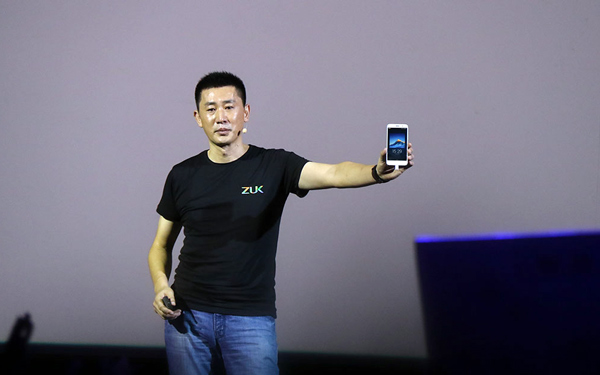Lenovo-backed ZUK unveils first handset
 0 Comment(s)
0 Comment(s) Print
Print E-mail China Daily, August 12, 2015
E-mail China Daily, August 12, 2015
ZUK, a new smartphone maker backed by Chinese tech giant Lenovo, launched its first device Z1 in Beijing.
Being as the largest shareholder of ZUK, Yang Yuanqing, chairman and CEO of Lenovo Group Ltd said that to invest in ZUK is one of the Chinese tech giant's major steps in its business transformation in the Internet era.
"ZUK is an independent brand different from Lenovo's previous subsidiary brands. The product Z1 is a smartphone produced for heavy users, it is also different from other phones manufactured by Lenovo and is an independent Internet brand that carries the mission to promote Lenovo's mobile transformation," said Yang.
|
|
| Chang Cheng, CEO of ZUK, delivers keynote on August 11th during the launch ceremony of the company's first smartphone Z1 held in Beijing. [Photo / chinadaily.com.cn] |
According to the keynote speech delivered by Chang Cheng, CEO of ZUK, the Z1 comes with a 5.5-inch Full HD 1080 pixel resolution display with Snapdragon 801 32-bit processor, a chip made by US semiconductor manufacturer Qualcomm in 2014.
There's 3 gigbyte RAM on board, with 64GB of internal storage. At the back, there's a 13MP camera with OIS and a front facing 8MP shooter.
The company claims that on an average, the chip managed to score about 46,000 on Antutu, a domestic Android benchmarking application.
Powered by Android, the 8.9mm thick handset is a dual-SIM phone with 4G LTE for wireless connectivity and USB Type C for wired connectivity.
Z1 is priced 1,799 yuan ($284.42), while no specific shipping date for the device has been announced.
A customized phone for college students
One of the phone's target users is university students, a key message sent during Tuesday's launch ceremony.
Apart from collecting comments from hardcore fans' online communities, the engineering team spent more than two months in 30 universities to carry out face to face surveys with college students and learn their demands.
U-Touch, a highlighted multi-function during Chang's speech, is designed by following input from the company's potential customers.
Located at the bottom of the display, by pressing or sliding the button, users can perform many functions such as fingerprint, switch back and forth between open apps, return to home button and open a multi-task management tool.
Chang did not unveil any "going global" strategy of the company, while the launch of his first phone has drawn attention from overseas android communities and some said an international launch event will be held 10 days later in Shenzhen.
Continually matured market
China's smartphone market has witnessed the "survival of the fittest" process as overseas and domestic fields are both lured by the nation's consumption power, while profits shrink when the market appears to reach saturation.
One in three smartphones shipped in China was from Xiaomi Inc or Huawei Technologies Co Ltd in the second quarter of this year, according to data released in early August by Canalys, a mobile market research firm.
Apple came third, followed by Samsung and Vivo.
"The China smartphone market continues to mature, remaining stagnant quarter-on-quarter," said Jingwen Wang, analyst at Canalys. "Competition among major brands has never been so intense. Huawei recorded the highest smartphone shipments in its history without compromising its product margin or profitability.
"Apple and Samsung have both increased sales in the China market, expanding rapidly through flagship stores and small-to-medium-size phone retailers, respectively," Wang said. "Xiaomi is under immense pressure to maintain its top position in the quarters to come".
According to report from the Ministry of Industry and Information Technology, in 2014, the average profit rate of the mobile phone sector was 3.2 percent, 1.7 percent lower than the average volume of the entire electronic manufacturing industry.
"Making mid- and low-end phones with high cost performance, which is a traditional strategy for domestic manufacturers, is a restriction for the companies' long-term development," said Wang Yanhui, secretary-general of the Mobile China Alliance, an industrial guild joined by 30 domestic phone makers. "Using innovation to accelerate development is a new opportunity for domestic players".







Go to Forum >>0 Comment(s)